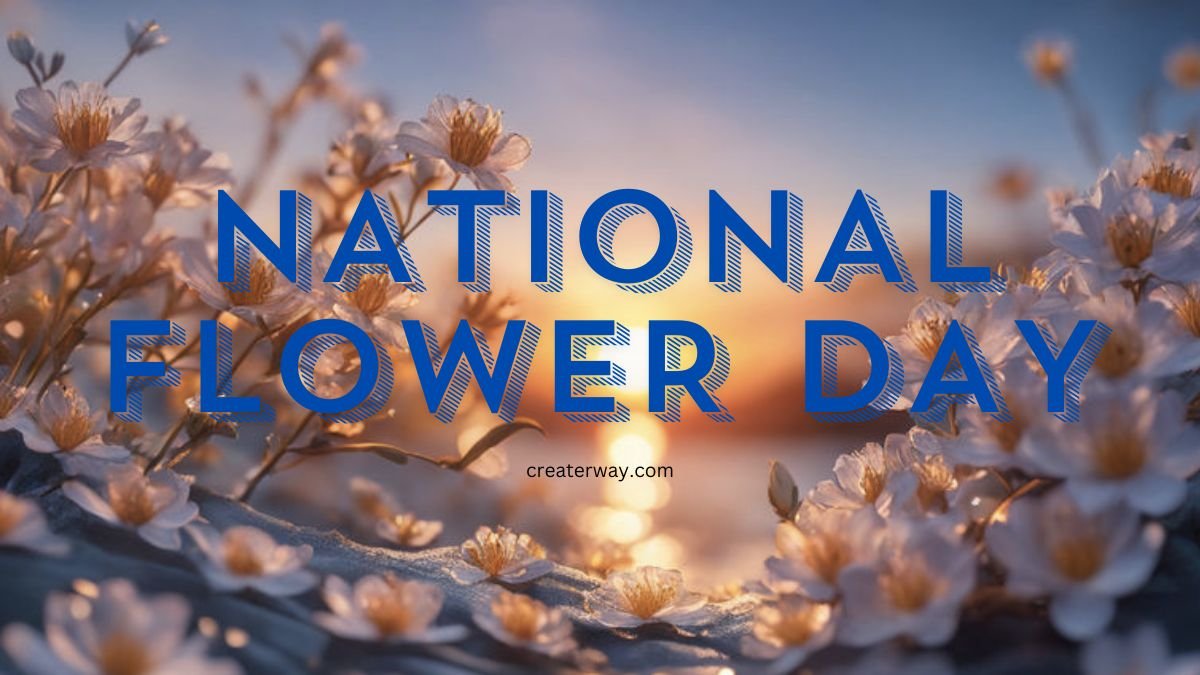Entertainment
NATIONAL FLOWER DAY

National Flower Day is a day dedicated to the appreciation of the vibrant and diverse world of flowers. This special day, observed on March 21, encourages people from all walks of life to stop and smell the roses, both figuratively and literally. Flowers have played significant roles in cultures, traditions, and our daily lives for centuries.
The Beauty of Blooms
Flowers have long captivated human hearts with their exquisite beauty. They come in an astounding array of colours, shapes, and sizes. From the delicate petals of a rose to the striking symmetry of a sunflower, the natural world offers a breathtaking assortment of floral designs. National Flower Day serves as a reminder to pause in our busy lives and take in the aesthetic wonders that surround us.
Cultural Significance
Flowers have held special places in the cultural tapestries of societies around the world. Here, we explore some of the ways in which flowers have been celebrated and integrated into various cultures:
- Symbolism and Traditions:
Flowers often carry deep symbolic meaning. For instance, the rose symbolizes love and passion, while the lotus is a symbol of purity and enlightenment in many Asian cultures. Different flowers play roles in weddings, funerals, and religious ceremonies.
- Language of Flowers:
The Victorian era saw the rise of “floriography,” a unique language of flowers where each bloom had its message. Gifting specific flowers conveyed sentiments that were otherwise difficult to express.
- Art and Literature:
Throughout history, flowers have inspired countless artists, poets, and writers. Famous painters like Vincent van Gogh and Claude Monet drew inspiration from blossoms. Iconic literature, such as William Wordsworth’s “I Wandered Lonely as a Cloud,” pays tribute to the natural beauty of flowers.
NATIONAL FLOWER DAY
Environmental Benefits
National Flower Day is not just about appreciating the aesthetics; it’s also an opportunity to reflect on the environmental advantages of nurturing and preserving flowers:
- Pollination:
Flowers play a critical role in the pollination process. They attract bees, butterflies, and other pollinators that are vital for the reproduction of many plants. This process is essential for our food supply as it supports the growth of fruits and vegetables.
- Air Quality:
Plants, including flowers, contribute to improving air quality by absorbing carbon dioxide and releasing oxygen. They also help filter out pollutants from the air, making our environment cleaner and healthier.
- Biodiversity:
Flowering plants provide habitats and sustenance for various insects and animals. Preserving a diverse range of flowers contributes to the overall biodiversity of ecosystems.
Ways to Celebrate National Flower Day
Now that we understand the significance of National Flower Day let’s explore some creative ways to celebrate this beautiful day:
Visit a Botanical Garden:
Take a trip to a local botanical garden to immerse yourself in a colourful world of flowers. Many botanical gardens feature rare and exotic blooms that will leave you in awe.
Start Your Garden:
Consider starting a flower garden in your backyard or even on your windowsill. Gardening can be a therapeutic and rewarding experience, and it allows you to appreciate the life cycle of plants.
Give Flowers as Gifts:
Share the joy of National Flower Day by giving a bouquet of fresh flowers to a loved one. It’s a thoughtful gesture that can brighten someone’s day.
Educational Activities:
Engage in educational activities with your family, such as identifying different types of flowers, learning about their symbolism, and understanding their role in the environment.
Support Local Flower Shops:
Purchase flowers from local florists and nurseries to support small businesses in your community. This not only celebrates National Flower Day but also strengthens the local economy.
READ MORE WITH US AT TOP TEN MOVIES IN 2023







